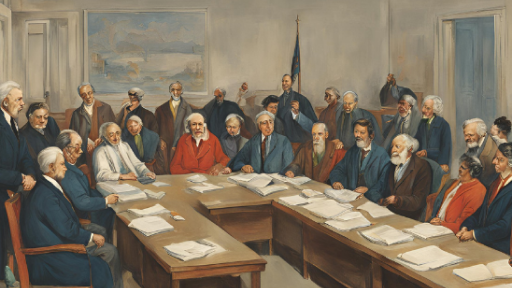
- Home
- Society Sunday
- Blog
The Story of a Nominee: A Bombay High Court Clarification.

In a bustling housing society in Andheri, Mumbai, a legal conundrum was brewing. Karan Vishnu Khandelwal, a grieving family member, was trying to navigate the intricate maze of transferring ownership of a flat after the passing of a loved one. This wasn’t just about property; it was about understanding the role of a nominee, the rights of legal heirs, and the responsibilities of the housing society. This real-life saga culminated in a significant ruling by the Bombay High Court on November 9, 2022, providing much-needed clarity.
The Background: What Happens After a Member’s Death?
Imagine this: A cooperative housing society receives news of a member’s passing. Among the paperwork, they find a nomination form submitted by the deceased. But is the nominee the rightful owner? What happens to the rights of legal heirs? These questions, long a source of confusion, were finally addressed in the case of Karan Vishnu Khandelwal vs. Vaikunth (Andheri) Cooperative Housing Ltd.
The Legal Twist: Understanding Section 154-B(2)
The Bombay High Court’s judgment drew upon the Maharashtra Cooperative Societies (Amendment) Act, 2019, which introduced Section 154-B(2). Here’s what the law clarifies:
-
Who Can Inherit the Flat? The society is empowered to transfer the deceased member’s share, right, title, and interest to the following individuals:
- Those named in a will or other testamentary documents.
- Individuals presenting a legal heir-ship certificate.
- Beneficiaries under a family arrangement document.
- Legal heirs with a succession certificate issued by the court
- Nominee as per rules.
The Role of the Nominee: A Temporary Custodian Contrary to popular belief, a nominee is not the owner. The Court emphasized that:
- A nominee is admitted as a provisional member under Section 154B-1(18)(c) of the Act.
- This provisional status is temporary until the legal heirs or rightful owners are identified and admitted.
- Importantly, a nominee cannot sell or transfer the flat without proper legal authoruzation.
A Reference to Indrani Wahi: A Precedent
The Court leaned on the Supreme Court’s earlier ruling in Indrani Wahi vs. Registrar of Cooperative Societies (Civil Appeal 4930/2006). This case had established that a nominee holds the property in trust, serving as a caretaker until rightful ownership is determined.
The Society’s Role: Walking the Tightrope
For cooperative housing societies, this ruling is a godsend. It provides clear guidance:
Follow the Law: Societies must comply with Section 154-B(2) while processing transfer applications.
Clarify Provisional Membership: Nominees should be informed about their limited rights and temporary status.
Insist on Documentation: Societies should require:
- Succession or legal heir-ship certificates.
- Wills or family arrangements for ownership transfers.
Prevent Misuse: Ensure nominees don’t exercise ownership rights, such as selling the flat, without proper legal documents.
Educate Members: Conduct workshops or issue circulars explaining the nomination process and its implications.
Lessons from Khandelwal’s Case
This case is a reminder that nominations, while helpful, are not a substitute for legal succession. For Khandelwal, the clarity brought by the Bombay High Court’s ruling helped untangle a complex situation, ensuring that legal heirs—and not just nominees—are recognized.
Conclusion: Navigating the Maze
The Bombay High Court’s judgment in Karan Vishnu Khandelwal vs. Vaikunth Cooperative Housing Ltd. simplifies a convoluted process. It ensures that cooperative housing societies adhere to succession laws, balancing the rights of nominees and legal heirs. By doing so, the ruling fosters fairness, legal compliance, and smoother operations for societies.
For societies and their members, this landmark decision is more than just a legal directive; it’s a roadmap for navigating one of life’s most delicate transitions. As Khandelwal’s journey shows, clarity in the law is not just about resolving disputes—it’s about creating harmony in shared living spaces.








